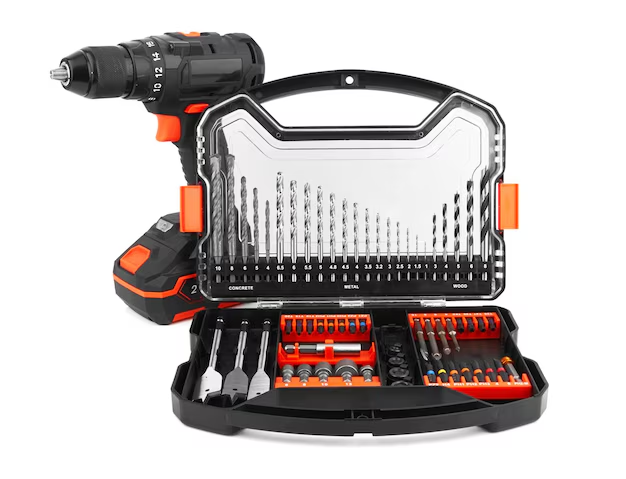
Whether you’re a DIY enthusiast or a professional, a reliable drilling tool is one of the most important items in any toolbox. From hanging shelves at home to tackling heavy-duty construction projects, the right drill can save time, increase accuracy, and make tasks far easier. But with so many options on the market, choosing the perfect drill requires more than just picking the first one you see. This guide breaks down the key features, benefits, and considerations to help you make the smartest purchase.
What to Consider Before Buying
When selecting a drilling tool, keep these important factors in mind:
- Power Source
- Cordless drills: Convenient, portable, and great for home projects.
- Corded drills: Reliable, consistent power for heavy-duty tasks.
- Speed & Torque
- Adjustable speeds allow versatility for drilling into wood, metal, or masonry.
- High torque is essential for tougher materials.
- Size & Weight
- Compact drills are easy to handle in tight spaces.
- Heavier drills are powerful but may cause fatigue during long use.
- Chuck Size
- Standard options are 3/8-inch (for light use) or 1/2-inch (for heavy-duty tasks).
- Extra Features
- Built-in LED lights, ergonomic handles, and variable speed triggers can improve usability.
Product Summary: Types of Drilling Tools
| Drill Type | Best For |
|---|---|
| Cordless Drill | Everyday home use, portability |
| Corded Drill | Continuous power, construction work |
| Hammer Drill | Masonry, concrete, and brick drilling |
| Impact Driver | Driving screws and bolts with high torque |
| Right-Angle Drill | Tight or hard-to-reach spaces |
Pros & Cons
Pros of Using Drilling Tools:
- Versatile for woodworking, metal, and masonry projects.
- Saves time compared to manual tools.
- Many models include adjustable settings for control.
Cons:
- Cordless models rely on battery life.
- Heavier tools can cause fatigue.
- Specialized drills may not be useful for all projects.
Who It’s Best For
- DIY Beginners: Cordless drills with basic features are user-friendly.
- Professionals: Corded or hammer drills handle demanding tasks.
- Homeowners: A compact drill with multiple speed settings works well for general household needs.
- Craftspeople: Precision drills are excellent for fine woodworking or small projects.
FAQs
Q1: Can one drill work for all tasks?
Not always—light drills are great for small tasks, but heavy-duty projects often need specialized models.
Q2: How important is battery life for cordless drills?
Very important—look for longer runtimes if you plan on extended use.
Q3: Are drilling tools safe for beginners?
Yes, as long as safety measures are followed, such as using protective gear and selecting the right bit.
Final Recommendation
The best drilling tool for you depends on your needs. If portability matters, a cordless drill is ideal. For consistent, powerful performance, a corded or hammer drill may be better. Before purchasing, think about the type of projects you’ll tackle most often and choose a tool that offers the right balance of power, comfort, and features. With the right choice, you’ll have a dependable tool that lasts for years.
